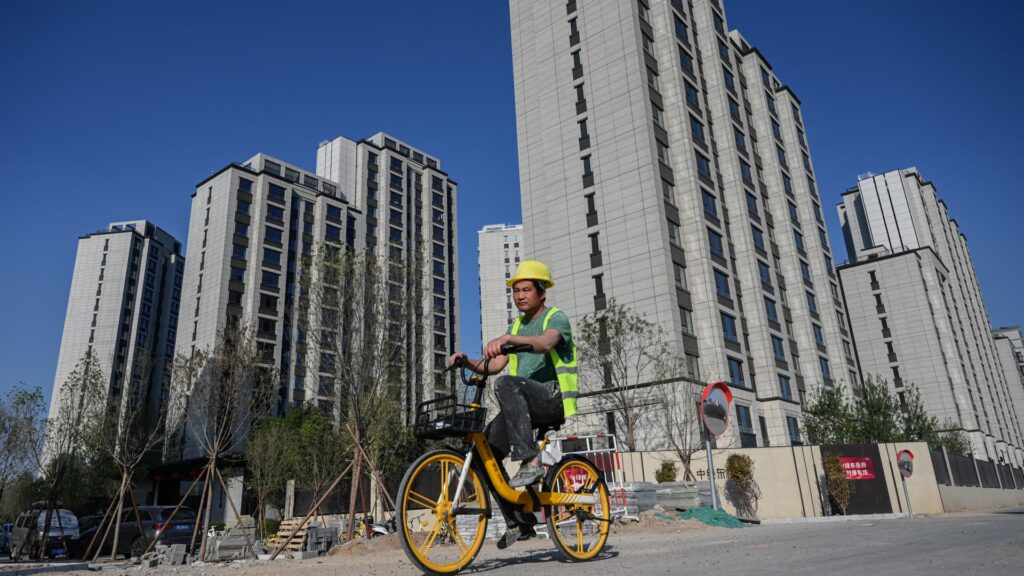On May 17, 2024, a worker rode a bicycle past a residential community under construction in Beijing.
Gao Yu | AFP | Getty Images
BEIJING – The International Monetary Fund on Wednesday raised its economic growth forecast for China to 5% this year from the previous forecast of 4.6%, citing “strong” first-quarter data and recent policy measures.
The increase comes after the International Monetary Fund conducts regular assessment visits to China. The organization now expects China’s economy to grow by 4.5% in 2025, up from its previous forecast of 4.1%.
But by 2029, they expect China’s economic growth to slow to 3.3% due to an aging population and slowing productivity growth. This is lower than the International Monetary Fund’s previous forecast of 3.5% medium-term growth.
Supported by strong exports, China’s economy grew 5.3% in the first quarter, better than expected. Data for April showed consumer spending remained subdued, while industrial activity picked up.
About two weeks ago, Chinese authorities announced sweeping measures to support the struggling real estate sector, including lifting the floor on mortgage rates.

Gita Gopinath, first deputy managing director of the International Monetary Fund, said in a statement that these policy moves were “welcome” but that more comprehensive action was needed.
“The top priority should be to mobilize central resources to protect pre-sale uncompleted home buyers, speed up the completion of uncompleted projects, and pave the way for resolving bankrupt developers,” she said.
“Allowing greater price flexibility, while monitoring and mitigating potential macro-financial spillovers, could further stimulate housing demand and help restore balance.”
An IMF press release stated that during his visit to China this month, Gopinath met with the Governor of the People’s Bank of China Pan Gongsheng, Vice Minister of Finance Liao Min, Vice Minister of Commerce Wang Shouwen, Deputy Governor of the People’s Bank of China Xuan Changneng, and the National Xiao Yuanqi, Vice Chairman of the State Administration of Financial Supervision and Administration.
“Nterm-term macroeconomic policies should aim to support domestic demand and mitigate downside risks,” Gopinath said.
“Achieving high-quality growth requires structural reforms to address headwinds and address underlying imbalances,” she added.
Chinese President Xi Jinping stressed the need to promote “high-quality, full employment” at a meeting on Monday, according to state media.
Xinhua News Agency reported that “Xi Jinping has placed special emphasis on improving employment support policies for college graduates and other young people.”

